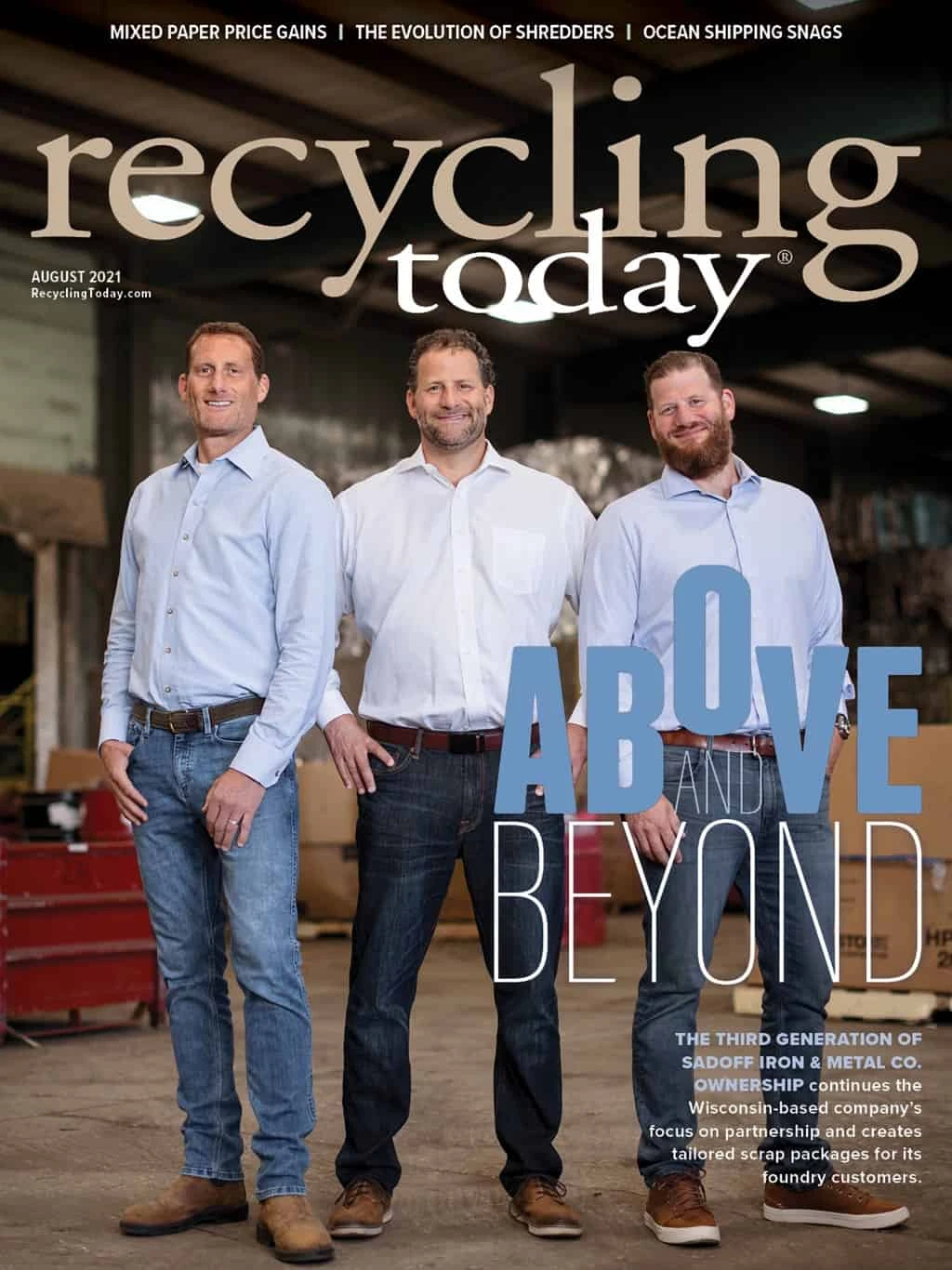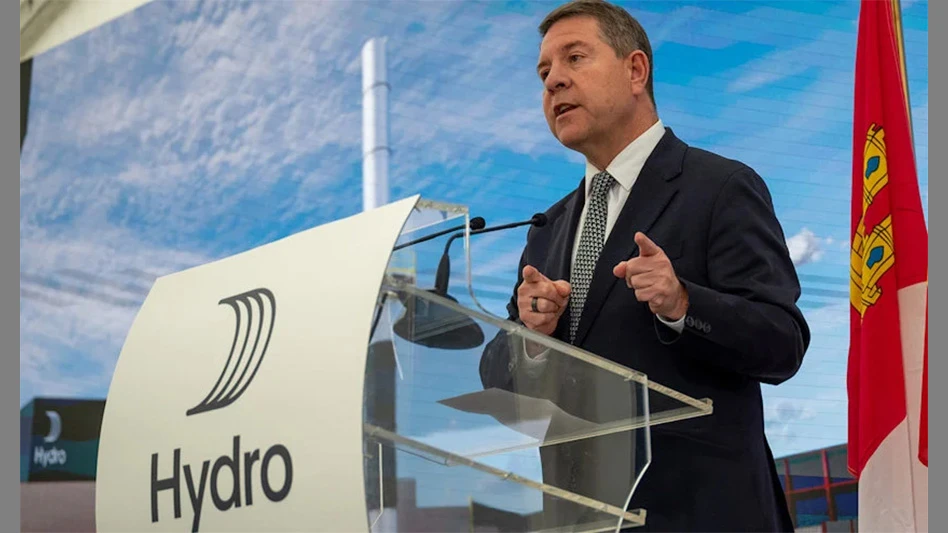
US Plastics Pact releases national strategy
The U.S. Plastics Pact, a consortium led by The Recycling Partnership and World Wildlife Fund as part of the Ellen MacArthur Foundation’s global Plastics Pact Network, has released a national strategy to ensure all plastic packaging will be reusable, recyclable or compostable by 2025.
The strategy, titled, “Roadmap to 2025,” is supported by nearly 100 corporations, startups, research entities and nongovernmental organizations across the plastics packaging value chain, as well as by state and local governments. According to a news release from The Recycling Partnership, the strategy includes mandatory reporting and specific time frames to realize targeted outcomes for a circular economy for plastics.
“The current state of U.S. infrastructure coupled with the lack of incentives to utilize recycled content in plastic packaging have put immense strain on the value chain,” says Emily Tipaldo, executive director of The U.S. Plastics Pact. “The road map is designed to help U.S. industry leaders act on the significant systemwide change needed to realize a circular economy for plastics by 2025. The time frame is short, and the workload is immense, but if we choose to do nothing, the visions of a circular economy across the U.S. will give way to the status quo. We look forward to working with all our members to drive this critical change.”
The U.S. Plastics Pact, which was formally launched in August of last year, developed the road map to ensure systemic change and accelerate progress toward four specific targets that address plastic scrap:
- defining a list of packaging to be designated as problematic or unnecessary by 2021 and taking measures to eliminate problematic packaging by 2025;
- ensuring 100 percent of plastic packaging is reusable, recyclable or compostable by 2025;
- undertaking actions to effectively recycle or compost 50 percent of plastic packaging by 2025; and
- ensuring the average recycled content or responsibly sourced bio-based content in plastic packaging reaches 30 percent by 2025.
In issuing “Roadmap to 2025,” the U.S. Plastics Pact and its signatories will approach each of these 2025 targets by supporting upstream innovation through an ecosystem of coordinated stakeholder initiatives.
“To meaningfully address the plastic waste crisis in the United States, we must unite the critical stakeholders—industry leaders, waste management systems and policymakers—under a cohesive action plan,” says Erin Simon, head of Plastic Waste and Business at World Wildlife Fund. “The road map will be the key for setting a national strategy that reaches our set targets and measures our progress in a consistent, transparent manner.”
According to The Recycling Partnership, the “Roadmap to 2025” follows precedents set by other pacts in the Ellen MacArthur Foundation’s global Plastics Pact Network, with hopes of bringing one unifying voice to plastic packaging guidelines, policy, education, labeling, access and infrastructure. Unlike any other existing U.S. initiatives, The Recycling Partnership says the U.S. Plastics Pact provides overarching leadership and accountability by aligning to develop a national strategy, advance shared goals and measure the strength of progress through annual reporting.
Vice President of Circular Ventures at The Recycling Partnership Sarah Dearman says, “The ‘Roadmap’ is an important step toward igniting systems change for the circularity of packaging in the U.S.”
PolyQuest invests in PET recycling operation
PolyQuest Inc., a Wilmington, North Carolina-based distributor of polyethylene terephthalate (PET) resins and manufacturer of recycled PET (rPET) resins, has announced more details on its plans to expand its facility in Darlington, South Carolina. The company initially announced plans to invest in its PET recycling operation in Darlington last September.
Since 2006, PolyQuest has produced rPET at its Darlington facility. Using either postindustrial or postconsumer PET feedstocks, PolyQuest can manufacture amorphous, crystallized and solid-state rPET resins that are either non-Food and Drug Administration (FDA) or FDA approved for food contact applications.
“Our business continues to grow at exponential levels, both organically in virgin PET and rPET, as well as via access to new resins such as polypropylene and polyethylene,” says Tod Durst, president of PolyQuest. “With demand for our products at the highest level we have experienced in our company’s history and limited available supply, our customers are facing extended lead times, which predicates that we hold higher levels of safety stock to service their needs. That factor, coupled with the continued push for recycled plastic content from brand owners and converters alike, made our expansion in Darlington a logical one.”
According to a news release from PolyQuest, the expansion will include the addition of four new buildings totaling 225,000 square feet, two new rail spurs, enhanced material handling capabilities and new machinery to process incremental volumes of rPET and other thermoplastics. PolyQuest is adding 15 jobs at the Darlington site with plans to grow.
“We have come a very long way in the past 17 years as we systematically grew our footprint in Darlington to accommodate the company’s growth in many directions,” says Ryan Nettles, vice president of operations for PolyQuest and head of the Darlington site.
PolyQuest reports that construction already has begun at the site, with an anticipated completion date of February of next year.
“Once this expansion is complete, our Darlington facility will have 525,000 square feet, the capacity to hold 38 rail cars, 160 million pounds of recycled plastic processing capacity, approximately 100 employees and over $50 million invested since 2004,” Nettles adds.
Get curated news on YOUR industry.
Enter your email to receive our newsletters.

Explore the August 2021 Issue
Check out more from this issue and find your next story to read.
Latest from Recycling Today
- Toppoint Holdings expands chassis fleet
- Lego creates miniature tire recycling market
- Lux Research webinar examines chemical recycling timetables
- Plastics producer tracks pulse of wire recycling market
- Republic Services, Blue Polymers open Indianapolis recycling complex
- Altilium produces EV battery cells using recycled materials
- Brightmark enters subsidiaries of Indiana recycling facility into Chapter 11
- Freepoint Eco-Systems receives $50M loan for plastics recycling facility





